10+ Awesome Ways to Make a Cell Model
Is your student studying biology? Choose any one of these awesome ways to make a cell model to create a colorful, hands-on project to help them learn all those sometimes hard-to-remember cell parts!
It doesn’t matter where they attend school – home, public, or private – at some point nearly every teen is going to take biology. When they do, the first thing they’ll likely study is the cell. And, chances are their instructor is going to assign them a cell model project.
Do you feel like you just read some weird, homeschooled teenager version of If You Give a Mouse a Cookie? You’re welcome.
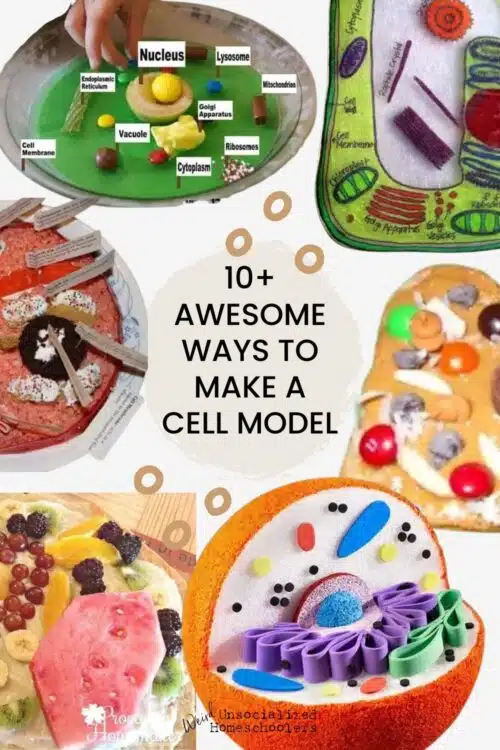
If you’re a homeschooling parent and your teen’s science curriculum doesn’t include building a cell model as one of their projects, do it anyway because it’s lots of fun!
There are lots of different ways to ways to make a cell model, whether you choose a plant or an animal cell. But, the following are some of our favorites. Some are edible, some are not, but they’re all super cool.
1. Cell Cake
Starting with my family’s all-time favorite, this cell cake uses a cake as its base with an icing cell wall, a cupcake nucleus, and a variety of candy organelles. We probably should have branched out a bit, but we made this model for a couple of kids’ biology lessons. Not only was it colorful and fun, but it made studying cells much more interesting because it was delicious!
Plus, it’s just funny to me imagining my kids at some future point in their lives thinking, “Mitochondria – was that the Mike and Ikes or the gummy worms??”
2. Jell-O Cell
Many, many eons ago, when my oldest was around twelve, we made our first Jell-O cell model. It was not pretty, y’all. And it was definitely not appetizing. As well as I can recall, we followed the directions and used what we had on hand, but I don’t care how great a slice of boiled egg represents a cell nucleus, eggs do not belong in Jell-O.
Even if I could find the obscure blog post featuring the tiny, grainy photo of that cell model, I wouldn’t subject y’all to that. This model from 123 Homeschool 4 Me is much prettier and more appetizing than the one we made.
My best tip if you make a cell model using Jell-O? Choose foods like fruits, marshmallows, gummies, and nuts to represent the organelles so that you’ll actually want to eat it when you’re finished. A banana slice makes a much better nucleus than an egg slice for a Jell-O cell.
photo credit 123 homeschool 4 me
3. Cookie Cell
Another tasty edible option is a cookie cell model. This one at Hip Homeschool Moms starts with a large chocolate chip cookie as the base. Bake the cookie in a pizza pan for an animal cell model or in a jellyroll pan for a plant cell. Then use icing, fondant, and candies to represent the organelles. Yum! This multi-use project lets you study science, brush up on some home ec skills, and provide dessert for the family after dinner all in one tasty project.
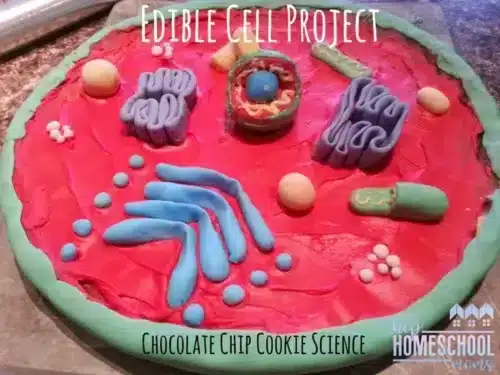
4. Pizza Cell
For edible models, you can’t go wrong with pizza, either. You can make a regular pizza cell model or a fruit pizza cell model. Or, do both! Make an animal cell pizza and a plant cell fruit pizza like the one pictured. You can study both cell types, compare and contrast them, and then eat your projects for lunch and dessert!
photo credit proverbial homemaker
5. 3D Cell Model
This 3D animal cell made from Styrofoam is fantastic! If edible projects aren’t your thing or you just want something more permanent, this is perfect.
Unfortunately, the Crafts N Coffee site is no longer active, but I thought you could still use their photo as a guide to make your own Styrofoam cell model! It features a foam craft ball with a wedge cut out as the base with the orange paint representing the cell wall. Use the leftover foam wedge to form the nucleus. Then, use a variety of self-stick foam dots and shapes or cut your own from foam craft sheets to represent the organelles.
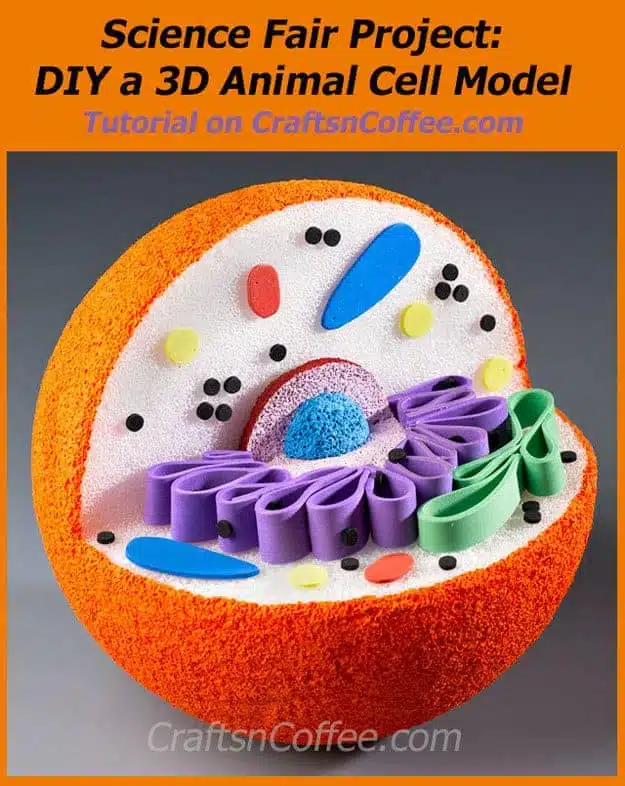
photo credit crafts n coffee
6. Clay Cell
If you like the idea of creating a foam model but want something a little more sophisticated than foam-shape organelles, check out this article from Hip Homeschool Moms on how to make a cell model from styrofoam and clay. It’s fantastic! I love the idea of forming the organelles from modeling clay! What a great way to review the shape of each and its job!
7. Sandwich Cell
If you’re short on time or have younger siblings who want to get in on the cell model making fun, try this simple edible sandwich cell idea. If you want to get more detailed, try using a large round biscuit or cookie cutter to create an animal cell model, or leave the bread square for a simple plant cell option. Then choose your favorite toppings for the organelles.
This example uses a caramel candy for the nucleus, which is one of my favorites, but you could also use a banana slice with other fruits like apples and raisins for other organelles. I do suggest sticking with the butterscotch and chocolate chip organelles, though, because yum!
photo credit adventures in mommydom
8. Shrinky Dinks Cell
Because my oldest used to love Shrinky Dinks, this Shrinky Dink cell model idea is one of my favorites! I wish I’d found it when my kids were younger. The article includes a tutorial with printable templates that your students can color in and label for both a plant cell and an animal cell. And Amazon has Shrinky Dink paper if you can’t find it locally.
photo credit Teacher Thrive
9. Lego Cell
If you’ve got a Lego lover, this Lego cell model is the perfect fit! My son definitely would have loved this one! No, you won’t get the right cell shape for an animal cell using Lego blocks, but it might be better to let that detail slide if the result is a learning activity that engages your Lego-loving kid.
Let your Lego fans design their own organelles and create a chart or labels to indicate what each represents. I love the way the kid who made the example pictured even created his own label markers out of Lego parts.
photo credit homegrown learners
10. Rice Krispies Treat Cell
For another tasty edible cell model idea, try this Rice Krispies treat cell. The original article is no longer available, but the photo provides plenty of inspiration. I’m pretty sure that’s a Fruit Roll-up cell wall and I’m here to testify that Fruit Roll-ups make a delicious addition to Rice Krispies treats! When my kids were little, we paired the two for some sweet “sushi rolls” when we studied Japan. Delicious! (Though, you may be dealing with a bit of a sugar rush craziness after your kids consume this one.)
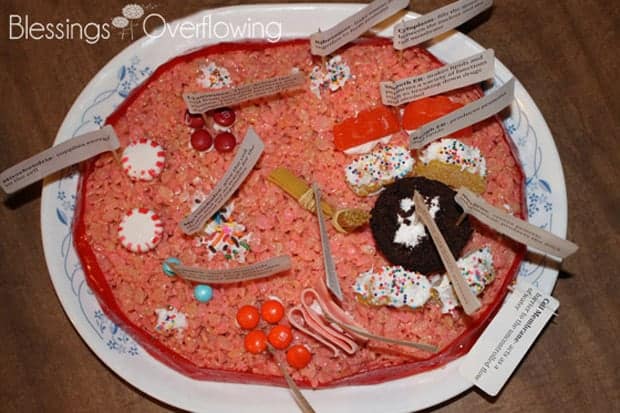
11. Spielgaban Cell Model
Have you seen the Speilgaban educational sets? They’re amazing, open-ended, hands-on learning tools featuring all kinds of kid-friendly manipulative parts. If you’ve got one, you’re going to love this idea for creating a 3D Model using the Spielgaban educational set.
And if you don’t have the set, I bet you can still use the inspiration to use similar items like blocks and craft supplies that you have at home to create your own cell model.
This is another opportunity to get younger students (or interested siblings) involved in the creative learning process.
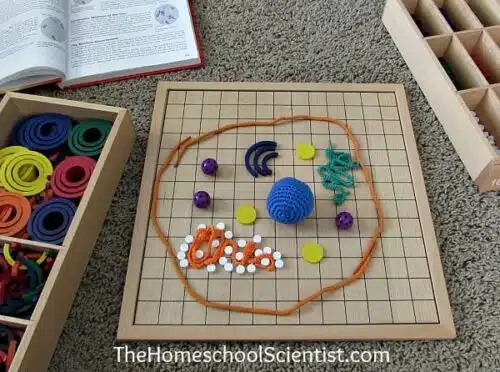
Bonus: Cell Printable Packs!
For more hands-on learning fun and activity ideas, add this Animal Cell Printable Pack or Plant Cell Printable Pack to your cell study. Or check out the Animal Cell Interactive Notebook.
Have you made a cell model that isn’t represented here? Leave your idea in the comments!
Pin this post so you can find it when you get ready to make cell models!
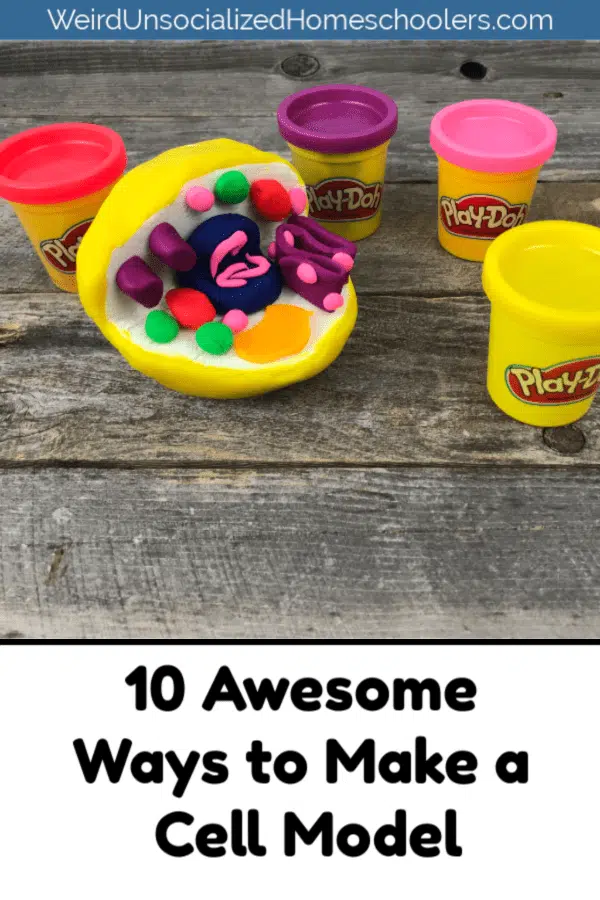
You Might Also Like:
- 100 Hands-On Activities for Middle and High School
- 10 Hands-On History and Geography Activities
- 13 Hands-On Activities to Enhance Any Study
Kris Bales is a newly-retired homeschool mom and the quirky, Christ-following, painfully honest founder (and former owner) of Weird, Unsocialized Homeschoolers. She has a pretty serious addiction to sweet tea and Words with Friends. Kris and her husband of over 30 years are parents to three amazing homeschool grads. They share their home with three dogs, two cats, a ball python, a bearded dragon, and seven birds.



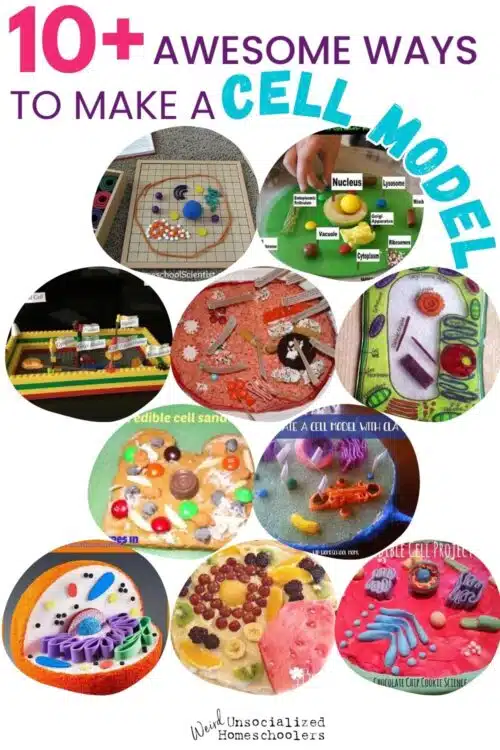
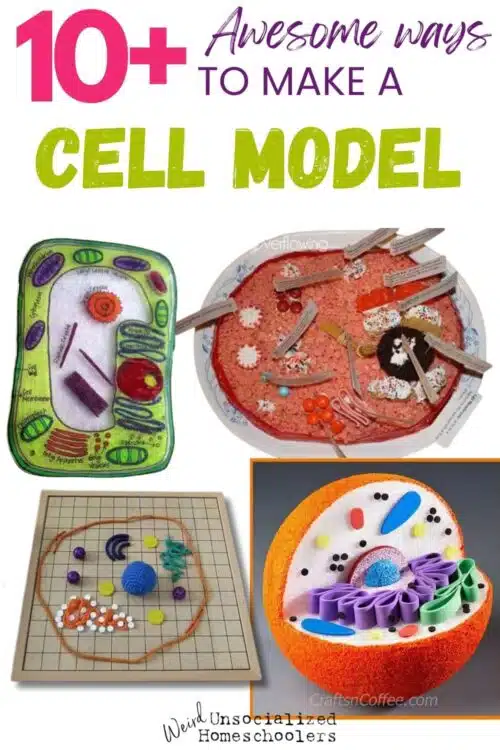
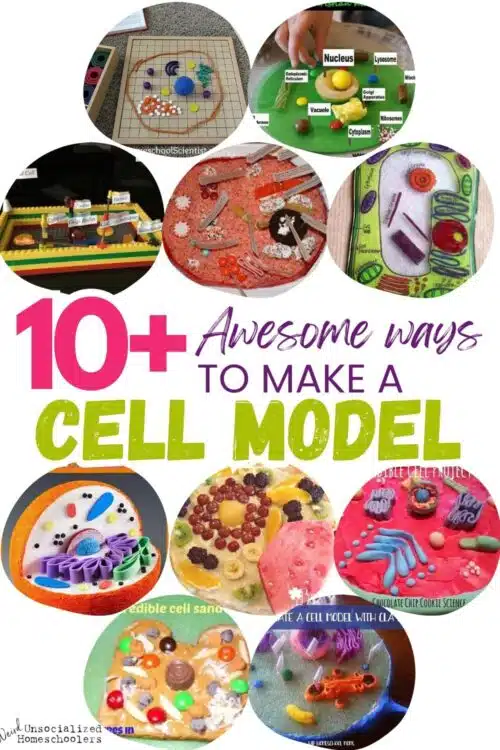
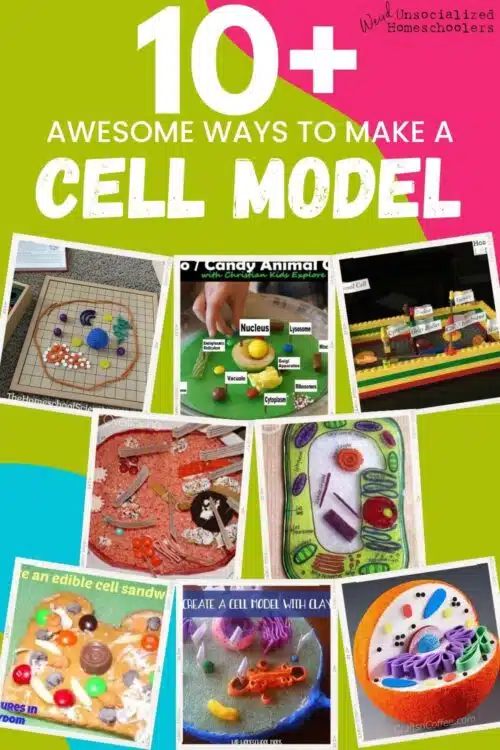
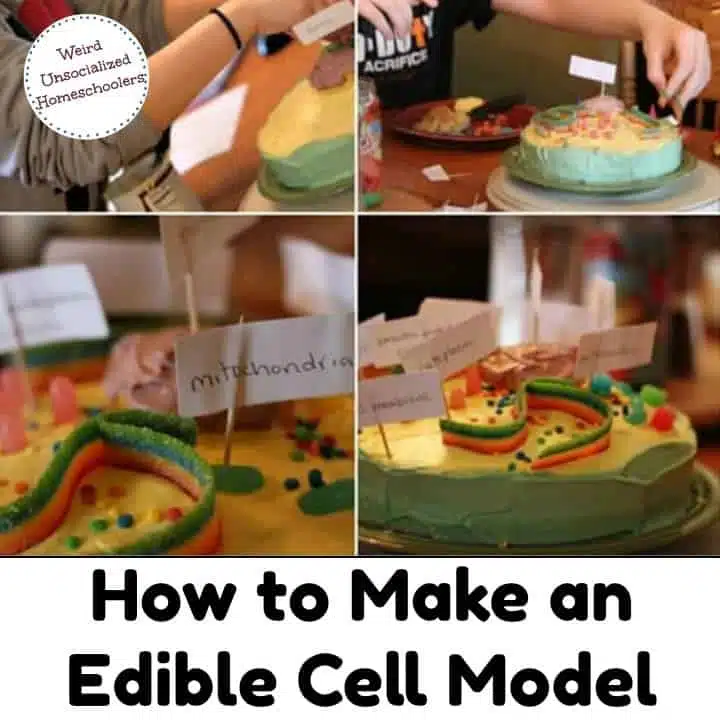
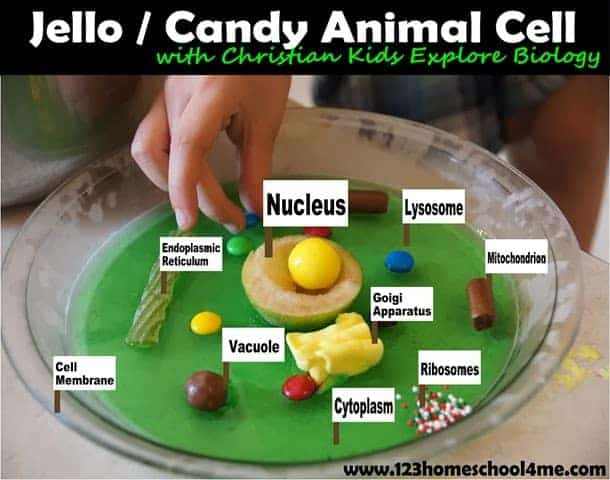
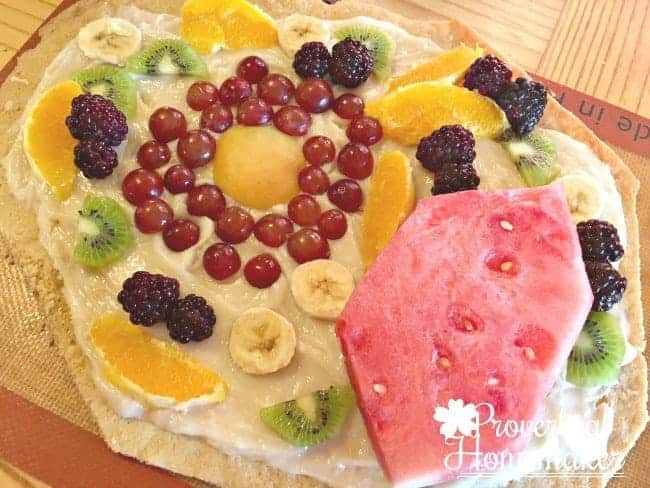
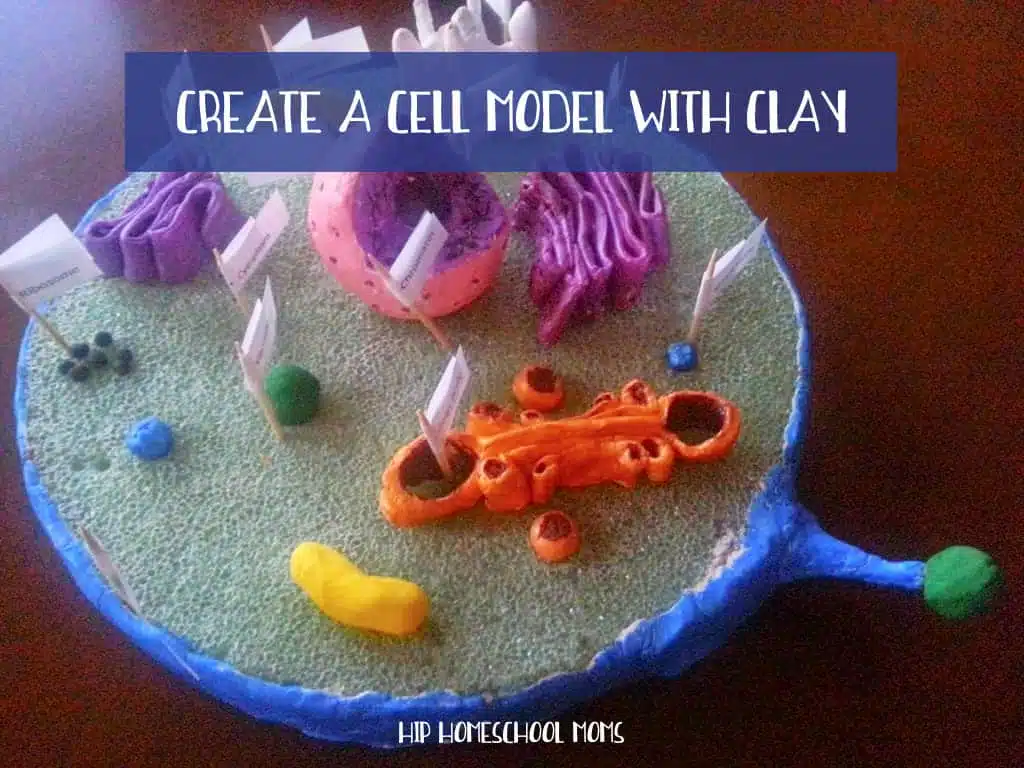
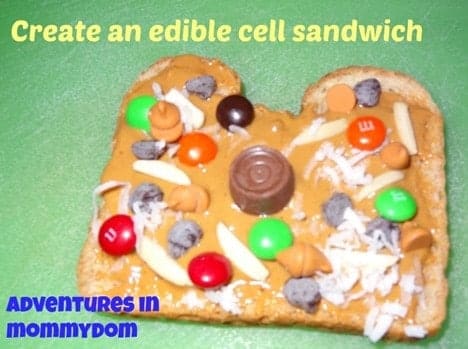
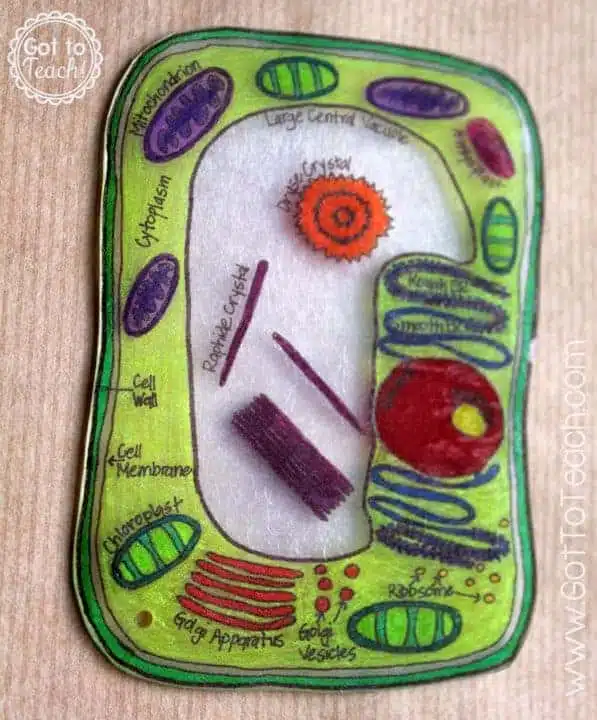
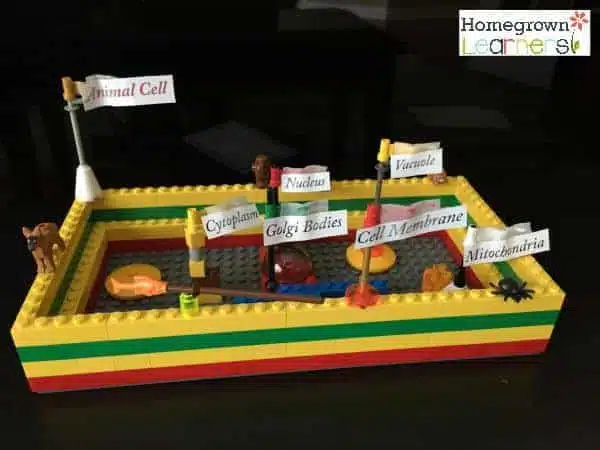
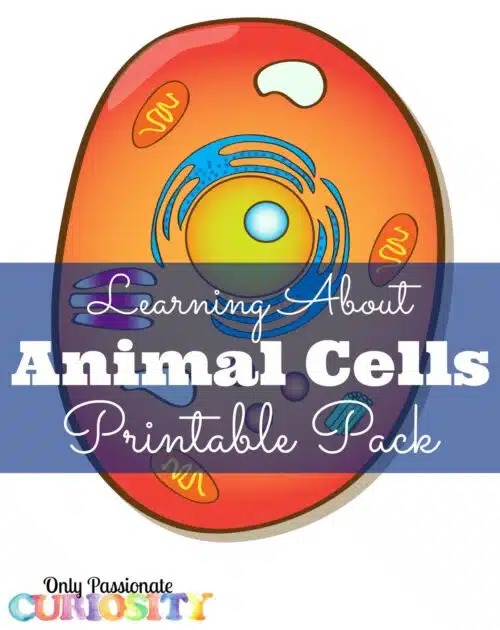
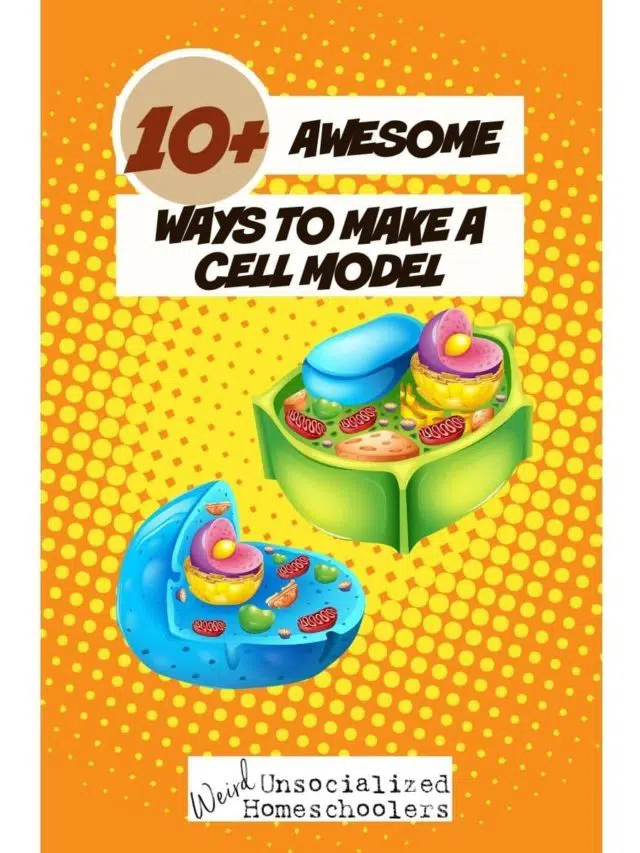
These all look so awesome! I hope to try a few of them while we’re on break.
Love these! We did a pizza and jello/candy– why didn’t I ever think of Legos??
These are totally awesome! I want to make the fruit pizza with my kids!
These look fantastic! Can’t wait to try them all! 😊
Doing a school project! Thanks for all of the great ideas!!!!!!!!!!!!
I am all about hands-on learning! Thank you for these great ideas that will inspire my students to achieve greatness!
This follows the BJU curriculum and the assignment gives the assessment I need for those tacticle learners. Thanks for sharing!
Using play dough for 3 d is plant cell. Will the play dough get hard or change colors
What can i.use on the play dough to keep the colors bright
theses are so cute i love them i am going to definety do one for my school project
my teacher is using these for our cell project and I saw the cake and was like yes thanks for the inspiration to my teacher